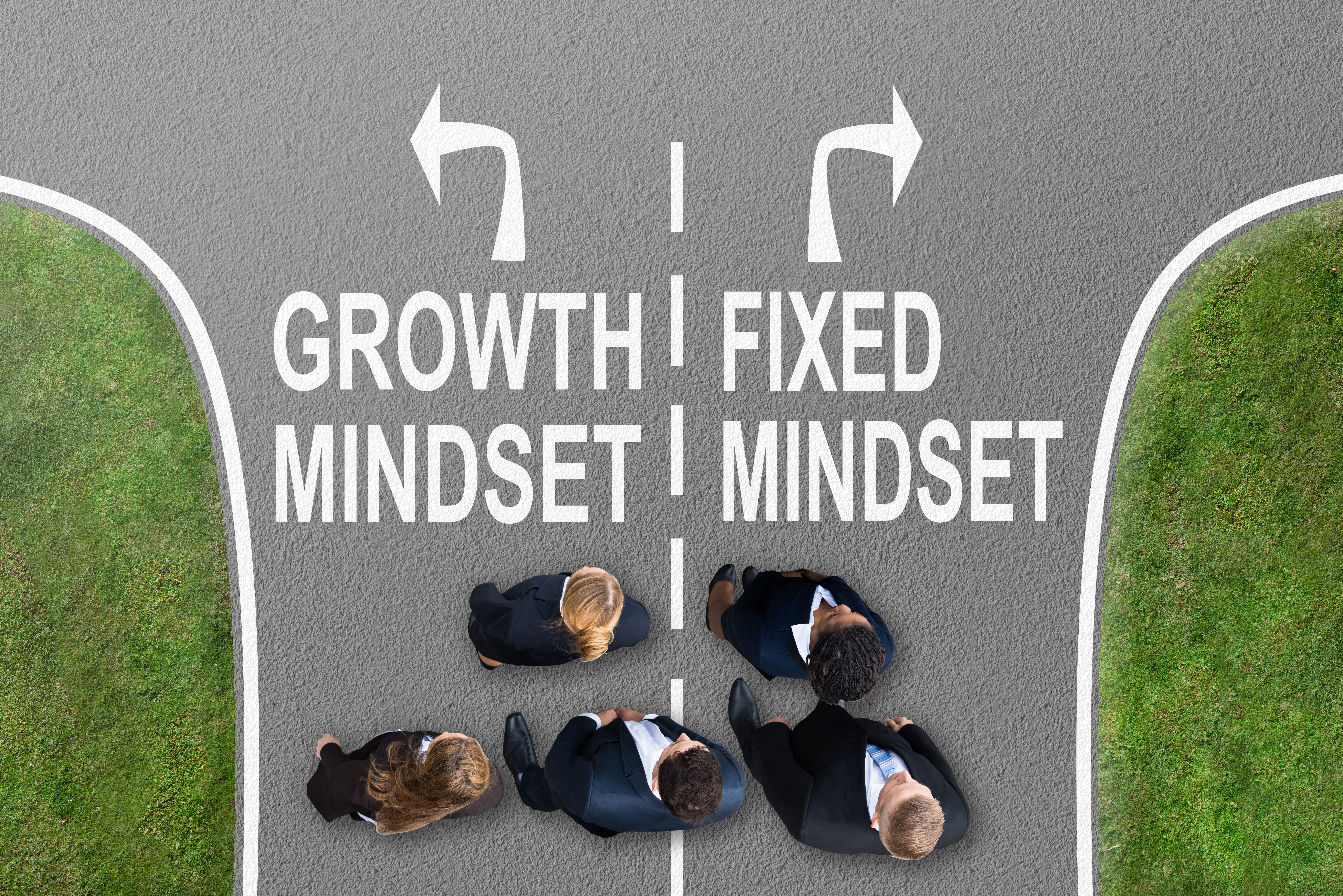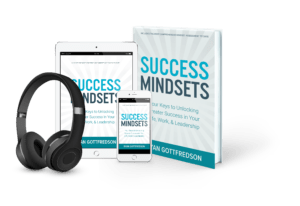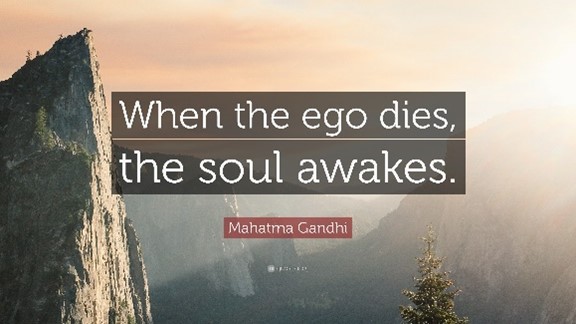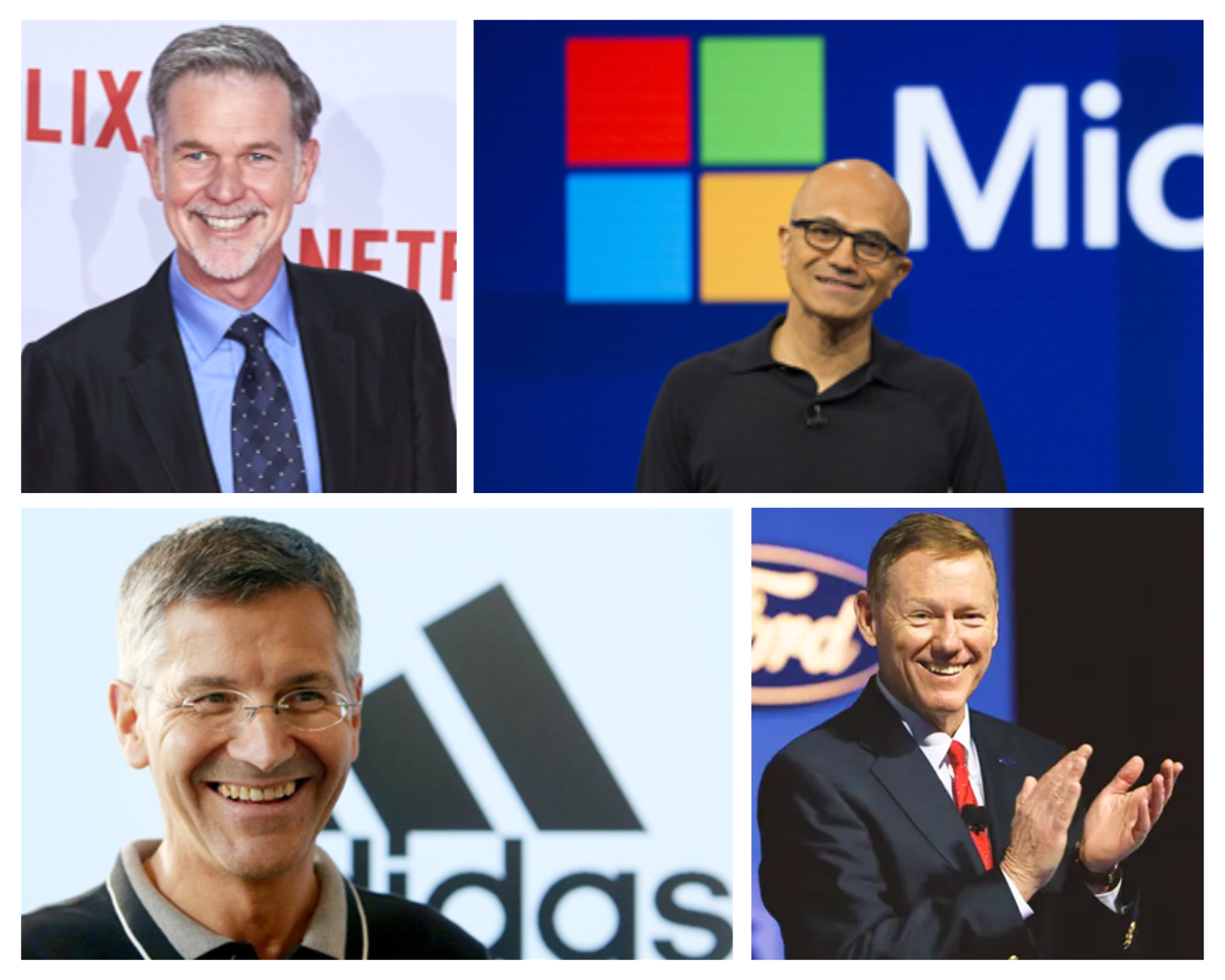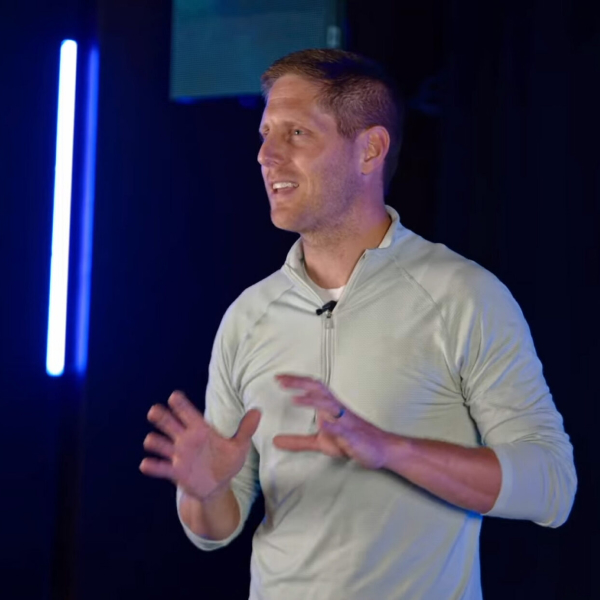The book launch for “Success Mindsets” is two weeks away. To highlight the launch, I want to share a personal story from my book about how having a fixed mindset limited my success. Then, at the end, I’ll add on something that I have learned since then that I wish I could go back and add into the book (next book maybe). Click the image below to purchase the book if you are interested.
From Chapter Six
If we see challenges and failure as things to avoid and the effort as a signal of our limitations or of being on the wrong path, we are going to behave very differently than if we see challenges and failure as opportunities to learn and effort as the path to mastery.
Reflecting upon my life, I can clearly see how having a fixed mindset altered my life’s path.
As early as I can remember, I had a fixed mindset toward my education. I was much more concerned about my grades than I was actually learning. As such, I always did the minimum amount to get an A, and I was able to accomplish that for nearly all my classes, earning me an academic scholarship my freshman year of college. I promptly carried this mindset with me as I went to college.
I went to college planning to become a medical doctor. This meant that I needed to take the year-long pre-med freshman chemistry course taught by the former 3M chemist who actually invented sticky notes. This class had the reputation of being a “weeder” course, with a low pass rate. I knew this, yet my mindset remained the same: least amount of effort to get an A.
During the first semester, I became friends with another student with similar medical school ambitions. When I would go over to his apartment, he was always studying. I remember wondering, “Why is he studying so much?”
I shouldn’t have been surprised when he got an A on the first exam, and I got a B.
With my fixed mindset, I did not view my B grade as a signal that I needed to work harder and study more. Instead, I chalked it up as “I wasn’t familiar with how the professor wrote his exam questions.”
As the first semester came to a close, I received a B–, the lowest grade I had ever received. My friend earned an A and posted one of the top grades in the class.
When interpreting this situation, my fixed mindset prevented me from seeing that my friend was gaining so much value from studying. Instead, it caused me to interpret the situation as he was naturally gifted at chemistry (a “have”) and I was not (a “have-not”). This interpretation meant that for the next semester, rather than buckle down and study harder, I essentially gave up, not only on the class but also on my desire to become a medical doctor. I ended that semester with a C and in search of a new major. Ultimately, my fixed mindset limited how I thought about my situation, how much I learned, and how I behaved.
I wish I could say that my mindset only affected how I operated in this chemistry class, but truthfully, I carried it throughout my undergraduate education. While I never got a grade worse than a B since that class, my mindset prevented me from putting forth increased effort to learn and master the material in the classes that did not come naturally to me.
My experience is not unique. Carol Dweck has repeatedly found that because fixed mindset individuals want to look good and avoid challenge and effort, they naturally select courses of action that are easy and make them look good, ultimately limiting their learning, development, and future success. Specifically, when Dweck presents subjects with an option to redo an easy puzzle or try something harder, those with a fixed mindset tend to stick with the safe, easy puzzle to ensure success and recognition. Those with a growth mindset, on the other hand, question the value of such behavior and instead opt for the hard puzzle to push and develop themselves.
If your personal mindset assessment revealed more of a fixed mindset, consider the times when your fixed mindset prevented you from approaching challenges with optimism and from putting in enhanced effort. In those instances, were you more concerned with being a have or with developing yourself?
We do not need to think in terms of “haves” and “have-nots.” That is a fixed mindset talking. A much more healthy and effective growth-minded perspective is “If it does not come naturally to me, it is only because I haven’t put forth enough effort yet.”
What I Would Wish I Could Now Add to This Section:
Looking back on this situation, I now recognize that I had a wide variety of options for how I could have responded to my “failing” grade.
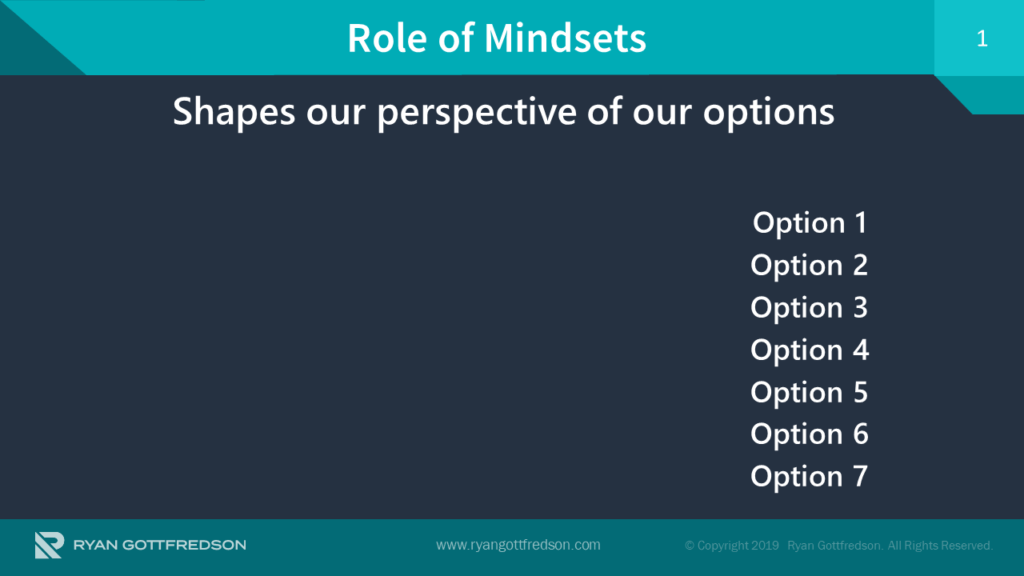
With my fixed mindset, I was only able to see a limited number of these options as being viable.
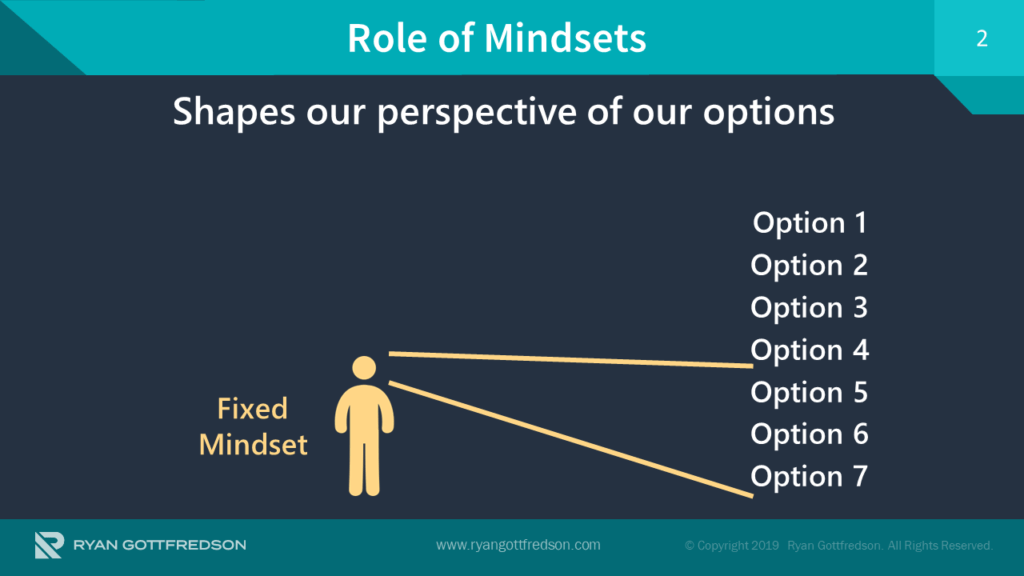
There are two things that I would like to point out that I think generally hold true across our negative mindsets:
- When we have a negative mindset, we are unable to perceive or seriously consider the most ideal options to our situations
- Out of the options that we can perceive and seriously consider, we will generally select the best option
What this meant for me is that with a fixed mindset, my best option I could see was to change my major. So, as I evaluated how I handled that situation after I made that decision, I was confident that I made the correct decision.
In a sense, I thought more highly of my decision than I really should have. Self-serving bias at its finest.
But, what I didn’t recognize then, but what I recognize now knowing about fixed and growth mindsets is that there were a variety of other more ideal options available to me that I could not see or take seriously. Those were options that I would have been able to see and take seriously if I had a growth mindset.

Such options would have included:
- Improve my study habits
- Dedicate more time to studying
- Take advantage of the professor’s office hours
But, why would I ever do those things with a fixed mindset, believing that my grade was a result of my inherent limitations and not my lack of effort and poor study habits?
Morals of the Story
When we have negative mindsets, we do the best we can with the options that are cognitively available to us. Thus, we tend to think that we are doing the very best that we can. Unfortunately, what we see as our “current best” is generally far from the “possible best.”
When we improve our mindsets, we open up a world of new options and opportunities to us which will allow us to live life more effectively and successfully.
If you are interested in my book and some giveaways associated with it, go here: https://ryangottfredson.com/books

